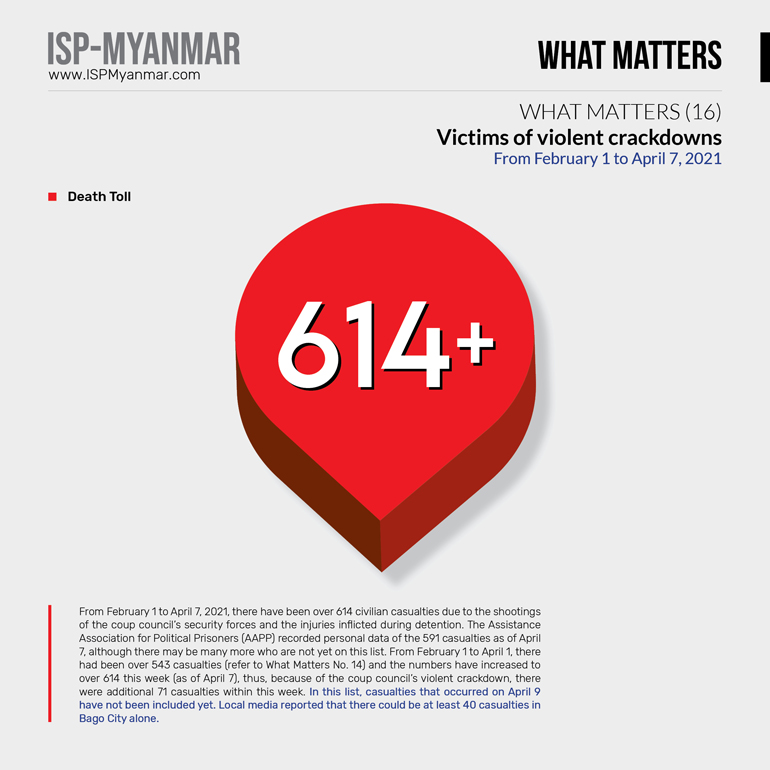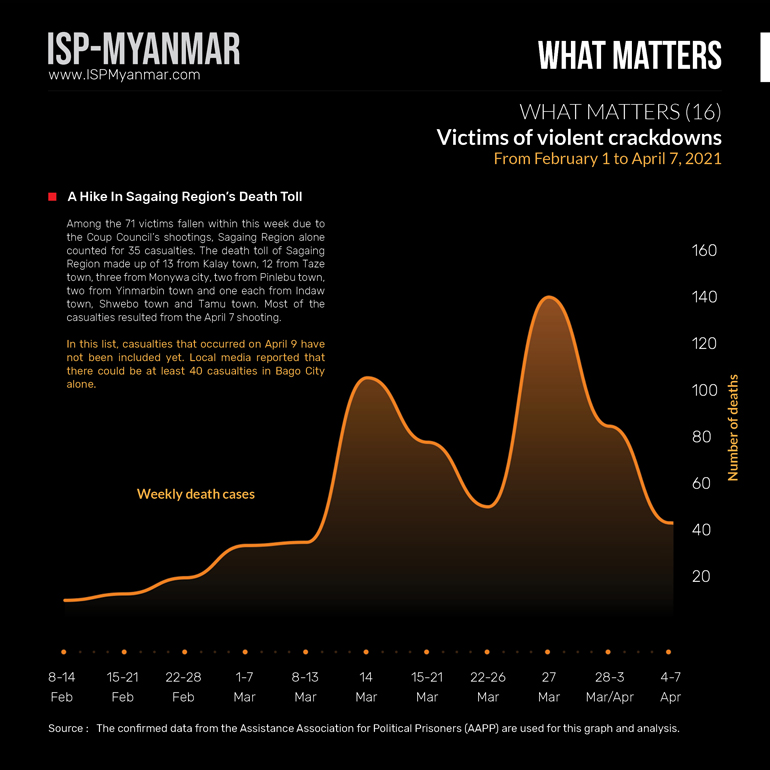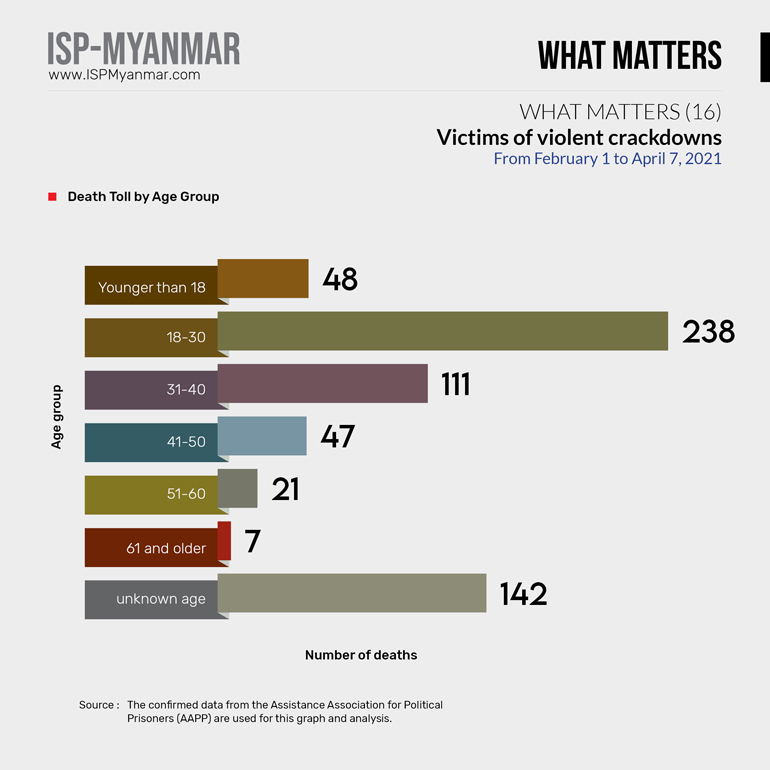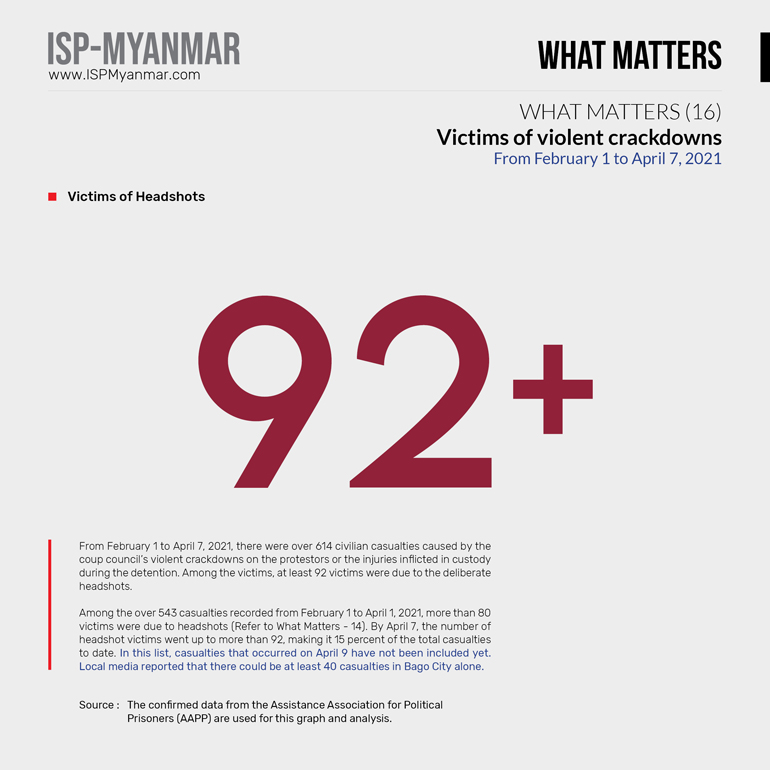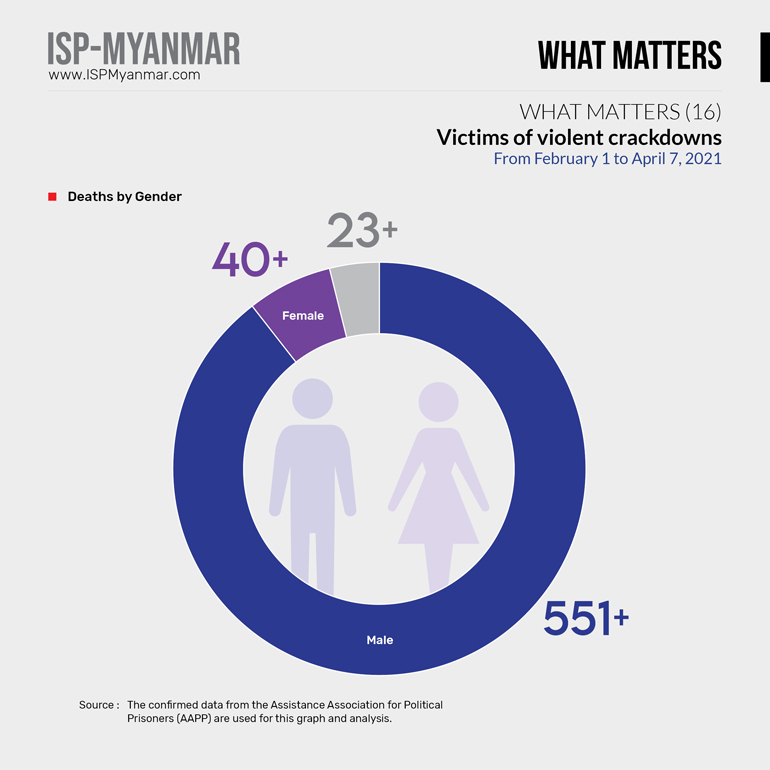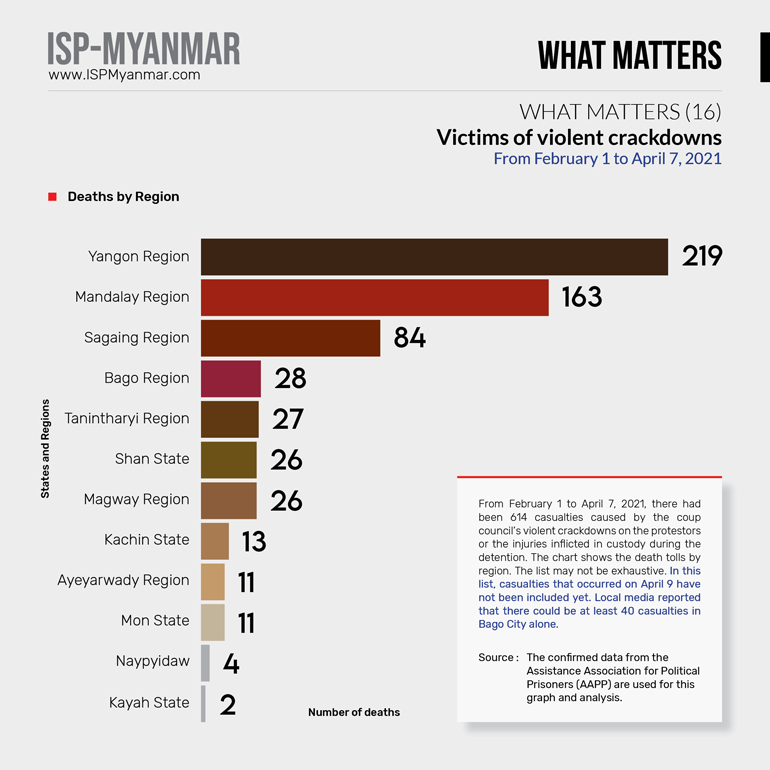(The original Burmese version was published on the ISP-Myanmar Facebook page on April 9, 2021.)
∎ Key findings in brief
Following the February 1, 2021, military coup d’état, mass protests have erupted across Myanmar. Because of the violent crackdowns against the mass protests, and injuries inflicted during the custody in the detention centers, as of April 7, 2021, there have been at least 614 civilian casualties. Moreover, many more were injured, and serious violation of human rights and human dignity committed by the security forces have been widespread. The Assistance Association for Political Prisoners (AAPP) recorded personal data of the 591 casualties as of April 7, although there may be many more who are not yet on this list.
Compared to the recorded total deaths of over 540 by April 1 (please see What Matters No. 14 published in Burmese on April 2, 2021), there have been more than 71 additional casualties within this week. Among the victims of violent crackdowns, protesters between the age groups of 18-30 and 31-40 were the highest. Following the two groups, the age group of under 18 years old also suffered more casualties this week. Moreover, the headshot victims during this week were higher than last week. The number of headshot victims increased from the last week over 80 (April 1, 2021) to 92 by this week (April 7, 2021), which made up 15 percent of the total casualties. The highest death toll was still in Yangon Region and that of Mandalay Region followed at the second position.
Among the additional 71 victims of the violent crackdown within this week, as many as over 35 victims were from Sagaing Region, making it the deathliest region this week. On April 7 alone, over 24 people were killed in Sagaing Region. Kalay (town) suffered up to 13 casualties, topping the death toll list in Sagaing Region and Taze (town) followed in second with 12 casualties.
∎ Why does it matter?
By looking at the extend of the violent crackdowns and examining the corps and body parts of the victims who died during protests and those who were killed in the targeted shootings, it can be determined whether the security forces complied with the internationally agreed standard rules and regulations to be followed when dealing with mass protests. These are important data that can be explored from a human rights approach as well as from a transitional justice perspective.
∎ Other relevant readings:
AAPP has collected detailed data about the anti-coup protestors who were victimized during the violent crackdowns. Since the February 1 military coup, AAPP’s database has kept recording the numbers and causes of the death of protesters, the ways the security forces used in responding to the anti-coup d’état mass protests, and evidence of human rights and human dignity violations by the security forces. Daily logs of AAPP is also available on the organization’s website and Facebook pages. Information can also be sent to AAPP for those who are not yet on the list.
◉ What Matters ISP-Myanmar covers a section entitled “What Matters” that could benefit the current anti-coup mass movements through a series of research work. This section aims to introduce issues and data that should be addressed in a short, easy-to-read manner and accessible to everyone based on research findings. The introduced facts, cases, and data are intended to be a thought-provoking stimulus, but not as a definite view. The purpose is to make the data presented more accurate and complete. In this series, ISP would try to answer three questions in general: 1) what is the issue of concern? 2) why does it matter? 3) is it relevant for Myanmar? Addressing these questions does not involve an exhaustive examination but covers the relevant elements and claims. Thus, each issue of “What Matters” provides a list of suggested readings and references for further study. In the current situation, this section will focus on research findings related to three research topics. These are: 1) research findings related to coup d’état 2) research findings on mass movements 3) research findings on how the international community (especially powerful foreign countries that can provide significant support ) intervened in military coups and the authoritarian states. The research will be based on comparative studies. Research data collected by local partner organizations will also be requested and respectfully presented in various forms from time to time.
